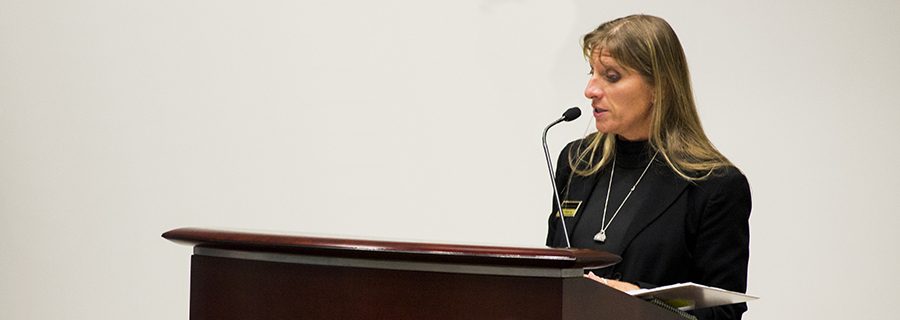Board concurs with Independent Audit Report
October 14, 2016
The spring 2016 $5 reduction in tuition coupled with a slight decrease in enrollment attributable to the college’s accreditation probation, have taken a toll the amount of money the college generated during the last fiscal year.
This information was contained in the Comprehensive Annual Financial Report (CAFR) independent audit carried out on the college’s financial revenue and expenses for the fiscal year 2016, and approved unanimously by the Board of Trustees. The audit also included how the college has put into place financial systems in order to demonstrate its accountability and covers a special report mandated by the Illinois Community College Board (ICCB).
The CAFR is an extensive audit that provides financial and statistical information intended to prove that a public college like COD complies with accounting requirements prescribed by the Governmental Accounting Standards Board (GASB). Clifton Larson Allen LP based in Oak Brook, Ill. was hired to carry out this audit.
After the audit was approved by the board, chairwoman Deanne Mazzochi was pleased with the level of work carried out by members of the audit committee.
“I would like to personally thank all members of the audit committee and management who put a considerable amount of work into this audit,” said Mozzochi. Trustees Charles Bernstein and Dianne McGuire are members of the college’s audit committee.
The numbers presented in the audit are favorable compared to budget situations at other Illinois public colleges. This independent audit pointed to a decline in revenue. Operating revenue, which means revenue from day-to-day activities that include tuition and non-operating revenue like grants and state appropriation to the college are down.
As per the reduction in non-operating revenue, the state of Illinois failed to make nine appropriated payments to the college. What was appalling to note is, the college has seen a reduction in the number of registered students enrolled in the Adult Basic Education program, Presidential Scholarships, and Pell Grants/Federal Direct Loans.
The Aug. 2015 decision to close down the Waterleaf Restaurant as a commercial restaurant and turn it into a student-run program also had an impact on revenue generation. The pros and cons of this closure have had the college in the spotlight for a very long time. The Kathy Hamilton-led board voted 5-1 to hand down this decision. Hamilton has since left the board.
Waterleaf’s loss a significant amount of money during its entire operation prior to closure. This has been a hallmark of recent bad publicity for the college. But again, the audit pointed out that the Waterleaf saw a $900,000 decrease in revenue during its closure. The eatery reopened over the summer and is run by students.
But a decline in revenue didn’t mean a reduction in expenditures since few vacant top level positions were filled and the college invested more into instruction, academic support, and student services.
Budget deficit problems emanating from Springfield, which hasn’t yet had a dramatic effect on the college still has the propensity to create a scare for the board. The audit also pointed out why bluntly concluding that the financial situation at COD will be like this, is a big guess. Legal cases hanging in courts that will lead to financial settlements may be a cause for a scare. The wrongful termination lawsuit involving former controller Lynn Sapyta is still pending despite the Department of Employment Security decision to award her unemployment payments from Sept. 2015. Sapyta was fired as the controller for what was described as poor fiscal practices.
Legal battles with former college President Robert Breuder are also still pending.
Read the full independent audit on the Board of Trustees page via www.cod.edu.




















